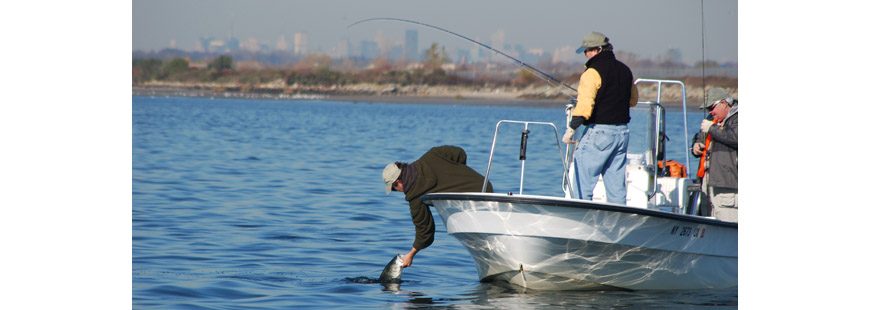MSA Bill Moving in Congress Doesn’t Conserve Our Fisheries
Top photo by John McMurray
If you are the same age as me, you’ll probably recall an educational series that ran during commercial breaks in Saturday morning cartoons called “Schoolhouse Rock.” One of my favorites was called “I’m Just a Bill,” and it explained how laws are created. A little rolled up piece of paper played the role of a bill that wanted to become a law. He started at the House of Representatives and was introduced at the appropriate committee. Elected officials debated whether the little bill deserved to be a law. If he passed the committee in the House, he would then go to a full vote on the House floor. After that, he would go through the entire process again with the Senate. Finally, if the President signed off, he would become a law. It was a pretty darn good explanation for a 7-year-old. Since we aren’t seven anymore, I’ll go a little deeper.
When a bill goes to committee, there are usually hearings. The chair of the committee invites witnesses to testify for or against the bill. Witnesses can include lobbyists from industry, special interest groups, independent experts, and even local government officials. These comments are included in the public record. Once the hearing process is over, the bill faces a markup. A markup session is when a subcommittee or committee considers, amends, and accepts or rejects the bill. If accepted, the bill goes on to the next phase, which is a vote on the House floor.
On December 13, 2017 the Natural Resources Committee held a meeting to review the markup for the reauthorization of the Magnuson-Stevens Act (MSA). The bill had gone through the hearing process. You hope with any bill that our government works well. That means that both sides of the table look at the information and come to some agreement that’s a compromise. That has always been the way with MSA. Unfortunately, that is not what happened on that Wednesday. Rather than taking in the advice contained in testimony and letters and from scientists, the markup followed party lines without input from the other side. The pro-harvest side doubled down on their efforts and incorporated the Modern Fish Act (HR 2023) into HR 200, the MSA reauthorization bill, rather than searching for middle ground in order to do what’s best for the resource. It has broken a four-decade tradition of elected officials working together to protect and enhance our nation’s fisheries.
The markup on December 13 left us with a bill that would allow the councils to consider economic impacts before setting annual catch limits. I’ve heard the economic argument more than a few times. It is easy to quantify with commercial fisheries what they catch and understand how much they will lose with catch restrictions. For recreational anglers, it is much more complicated to quantify what is caught or killed and much easier claim lower catch. It sets the stage for an uphill battle every time a fishery is in decline. Science will tell us we need to reduce harvest, and someone will say his or her business will suffer. The fish will lose in the end.
The markup included many more non-conservation related aspects that are troublesome. One aspect that doesn’t pass the smell test is a call to look at the allocation for Gulf of Mexico and South Atlantic species in the next two years and revisit the allocation issue every three years. In all my time in this work, I never once went after reallocation. There’s no conservation in trying to take fish from another sector. That’s nothing more than a “grab,” and it is distasteful. I want no part of that.
The final aspect I’d like to discuss is a small change in the section for rebuilding depleted fish stocks. MSA currently mandates a 10-year timeline for rebuilding and demands that stocks be rebuilt as soon as possible. If you change the word “possible” to “practicable,” as the House Committee did in this bill, what do you think will happen? Rebuilding will be dragged out for as long as possible rather than as quickly as possible. Anyone with council experience knows that this will cause stocks to languish in recovery rather than recovering quickly.
You may be wondering about the title of this article? Why are we the enemy? Because this partisan effort is being led by the recreational community. I am in an interesting position because I used to work for one of the groups advocating for this legislation, and “conservation” is its middle name. I’ve looked over the bill quite a few times and have yet to find anything conservation-related. There’s so much good we could do with a MSA reauthorization. We could protect critical habitat areas. We could make sure there are enough forage species to support a healthy food web. We could better fund scientific research that will give us better management tools. This bill does none of that. It caters to one sector and ignores the good work we could all do together to ensure a healthy resource for generations to come.



John…
The Council Coordinating Committee support elements of HR 200.
Hearings on the 2006 Amendments started in 2009 to address the impacts of the implementation of the amendments.
We are hopeful for proper reform of MSA and will continue to advocate for legislation.
Best wishes for all in this New Year.
Greg DiDomenico
Garden State Seafood Association.
Hi Greg… Not the author of this one. Just supplied the photo. Tony Friedrich is…
OK…good photo.
Thanks for clarifying.
Greg D